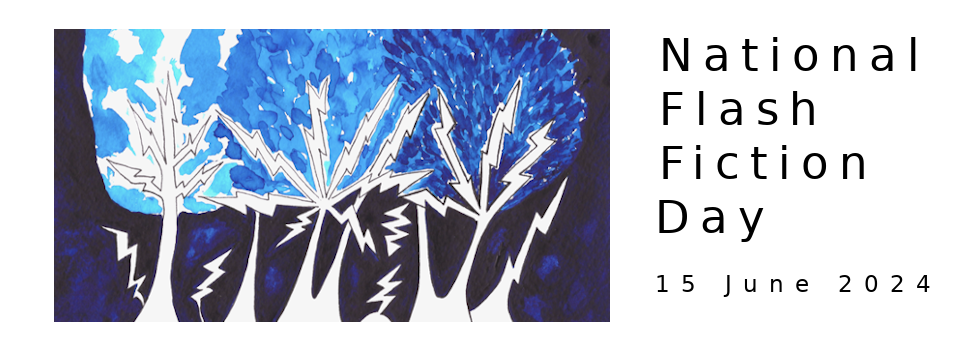Flash fiction it's all the rage now. It's short, it's snappy, it's intense, it's bitesized. It's a short piece of fiction that ranges from the single word to a roundabout 1000 words at a stretch. It's as direct as poetry but without the same abstraction. It makes words work extra hard through attention to juxtaposition, erudition, etymology, sound and tempo. Flash fiction requires skill and wit, it requires a writer with nerves of steel, and a sharp steely scalpel that cuts out everything that distracts or is not necessary. It's a shot, instead of a pint. It's a story without the subplots, it's character as plot. It's story boiled down to it's essence: Character, motivation, action, epiphany (or you could be really clever and try a characterless epiphany or make the reader the character – anything to save words).
Have I convinced you yet? Is flash fiction really something different? Something that should be recognised it's own right?
Here in Ireland the recognition of flash fiction is definitely on the rise. After an Irish Times article (in which some of my views were quoted) the Irish Times proceeded to publish a flash fiction piece every day in it's newspaper. In an era when fiction is being edged out of many publications this is a terrific boon. In addition the lauded Irish national radio's arts programme RTE's Arena is now holding a flash fiction competition and both the Fish and Bridport Prizes have added flash fiction to their competition categories.
My own experience of finding flash fiction was through the Twitter community and hashtag #fridayflash. Here I found a place where I could create and read small pieces of fiction that, at it's most effective told a complete story and set of cerebral sparks. Many of these stories are being collated in Flashes of Sadness and Light where many of the characters appear again and again in each others stories.
We live in an age when everything and everyone is a story. We invent ourselves through Twitter, Facebook and YouTube, we look the extremes of the human condition through reality TV. We have round the clock news delivering pathos, action, outrage, rhetoric, conflict all in a moment.
Flash fiction is quick, it hits hard like the headlines. Flash has to find the hook fast, it needs to speak to us to reflect or expand our experience or it loses the reader. The beauty of flash and the crux of why it is important is that while it is short, quick, intense, accessible, bite-sized for the Smartphone it is made of words and can give us the best of what fiction can give.
And what can fiction give us? - Reflection, resonance, depth, pause, perspective. Through the eyes of authors, through their choices we can experience news ways of looking at the world, new understanding or just be plain old entertained.
When you look back at a book you enjoyed, or a film or piece of music, there is often a key scene or in music a lyric or a theme that sticks in your head and sums everything up and that is the power of flash fiction, it can be that killer moment, that set of notes that twists the knife in your gut, it is the shady bit in the middle of a Venn diagram that says everything that needs to be said: confluence, convergence, coincidence, consequence.
Do you remember a look years on? Where you were standing when you heard the news? That's flash.
As a writer, writing flash has given me: the opportunity to experiment, the discipline of chiselling a piece down to its fundamental elements, the joy (as a psychology graduate) of making character itself tell the story. It also has provided the parameter for me to ask myself over and over again, what really matters in the story? What creates an effect and what makes a difference?
Reading, most recently David Gaffney's very short pieces (or micro fiction) as he likes to call them in his collection Sawn Off Tales what has struck me is that these flash fictions have the impact of stand up comedy gags. We have the anticipation, the initial idea planted in our heads as to where the story or the gag might be going, then the exposition, the story, the thing that happened and finally, the resolution – or maybe not – both in comedy and in flash fiction the power is sometimes in the not saying, in the juxtaposition of ideas or occurrences that sets off a trigger in the mind of the reader. So flash fiction will be, (and perhaps even more so than other fictions) a collaboration between reader and writer, a conspiracy or collusion of understanding, shared conventions understood and then exploded.
While some commentators are still not sure that flash fiction is more than a writing exercise, I am firmly convinced that it taps into our human desire for anecdote and wit, it requires quick thinking, many connections firing at once. In this modern age of multitasking and parallel processing of all kinds of media, flash fiction, in my opinion, is something that is smart, quick and effective but also something that will endure as a way of making sense of the world and a fantastic way to enjoy and experience that sense making.
